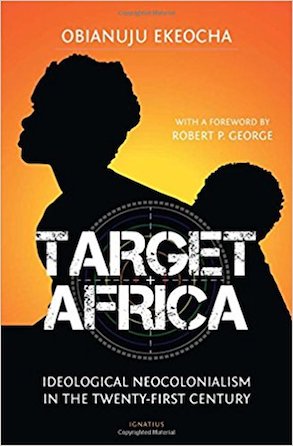Astute critics of foreign aid contradict the conventional wisdom, which means they can be ignored. “Aid” keeps on flowing – even if its effects have, on balance, been negative. Genuine charity is never to take a back seat. But at some point, when abundant evidence indicates that a given intervention is mainly counterproductive, sobering questions should be answered: What are we really doing here anyway? Aren’t there better approaches?
Beginning in the 1970s, British economist Peter Bauer characterized the attitude that aid is indispensable to development as condescending; he objected to the very term “aid,” which conjures up straightforward benevolence that only a curmudgeon would question. In practice, however, use of the term politicizes the economic sphere and stifles the creative human energies that are so crucial to development. From Bauer came the memorable judgment that aid fundamentally amounts to “an excellent method for transferring money from poor people in rich countries to rich people in poor countries.”
 In his 2006 book The White Man’s Burden: Why the West’s Efforts to Aid the Rest Have Done So Much Ill and So Little Good, William Easterly makes a fairly basic observation (for those who actually know something about foreign aid programs): no country has been lifted out of poverty through foreign aid. And yet some poor countries have risen to prosperity without it.
In his 2006 book The White Man’s Burden: Why the West’s Efforts to Aid the Rest Have Done So Much Ill and So Little Good, William Easterly makes a fairly basic observation (for those who actually know something about foreign aid programs): no country has been lifted out of poverty through foreign aid. And yet some poor countries have risen to prosperity without it.
Using the kind of logic that was once routinely instilled, Easterly, therefore, concluded that aid is neither sufficient nor necessary to improve material living conditions. Zambian economist Dambisa Moyo amplified these objections – i.e., a trillion dollars of “aid” over a half-century actually made things worse – in her 2009 bestselling book Dead Aid.
A new, well-reasoned book by Nigerian born author Obianuju Ekeocha echoes these justified criticisms but goes further in important and unique ways. This is evident from her title: Target Africa – Ideological Neocolonialism in the Twenty-First Century.
The point that she accentuates more pointedly than her predecessors is the sizeable ideological dimension built into the foreign aid agenda. Since when did “humanitarian” aid stipulate that Africans accept the imposition of corrosive and alien western attitudes and practices regarding sexuality and the family?
Ekeocha sensibly writes that if her neighbors lost their home in a fire, she wouldn’t be foisting contraceptives upon them, along with the food and blankets. That would be regarded as offensive. So why should be this happening en masse in the form of Western “aid” to Africa?
That’s a truly humane point that is nevertheless lost upon our soi-disant humanitarians. They have decided there is an “unmet need” for devices and procedures to limit family size – so that’s that.
She unmasks terms like “unmet need” for what they really are: cover for the destructive Western mores that Africans sensibly find unsettling. Apparently, colonialism is only to be condemned in the past tense; indeed, we are convinced that the nihilistic replacement for what we have rejected – Christianity – needs to be exported with missionary zeal.
Funds earmarked for “population control” have skyrocketed in the roughly twenty-five years since a U.N. conference in Cairo sought “solutions” to the “problem” of population. As of a few years ago, 71 percent of these monies flow to Africa. Kind of like Planned Parenthood clinics just happen to have a tendency to be located in certain minority neighborhoods.
The book is loaded with facts and figures that more than make the case that Africa is in the crosshairs of the international aid “community.” If you are wondering why all this is ignored, ask yourself why you have heard about NFL players kneeling during the national anthem, but not the NFL player, Ben Watson, who also “uses his platform” to label abortion as the “ultimate form of racism.”

Not only are there more abortions than live births among blacks, but the number of black lives cut short due to abortion also surpasses the top 15 leading causes of death for African-Americans combined. Shouldn’t Kanye West be tweeting about this too?
Ekeocha does not shy away from the uncomfortable fact that African corruption is a big part of the problem; she knows the future will be bleak if that does not change. It was also painful for her to realize that there are influential African leaders who are “personally opposed” to the Western culture of death but who acquiesce because of considerable personal gain. These factors lead her to conclude that the harm introduced to Africa via the aid industry has been “largely self-inflicted.”
If African leaders are in it for their own good, Western officials and employees have their vested interest as well. Theodore Dalrymple, noticing people ringing bells on the streets in support of UNICEF, deduced that they were really seeking:
to raise funds for the annual leave, dependency allowances, medical and dental insurances, pensions, rental subsidies, education grants, home leaves, life insurances, paid sick leaves, family leaves, family visits, maternity, paternity, and adoption leaves, and special leaves for UNICEF workers worldwide.
Careerism is one thing; countering the more corrosive ideological dimension at work in the exportation of the sexual revolution is quite another, more difficult task. Especially when even Christian agencies operating in this arena (I say this from personal experience) recoil from doing so. When, say, German bishops regard unabashed African appreciation for Catholic teaching – in stark contrast to their pre-Christian customs and our post-Christian customs – as simplistically outdated. The Germans have actually said they wouldn’t be taking any direction from Africans who seem so reluctant to accommodate the “complexity” of modern life. With any other issue, you don’t get that kind of Western haughtiness.
Ekeocha offers what is needed most: a vision grounded in hope that goes hand in hand with high expectations. To sail through life without high expectations is to invite shipwreck; they may be hard but they best unleash human agency. She has set the bar high because that is where it needs to be – for Africans just as much as Westerners. It’s a universal – quite Catholic – thing.
















